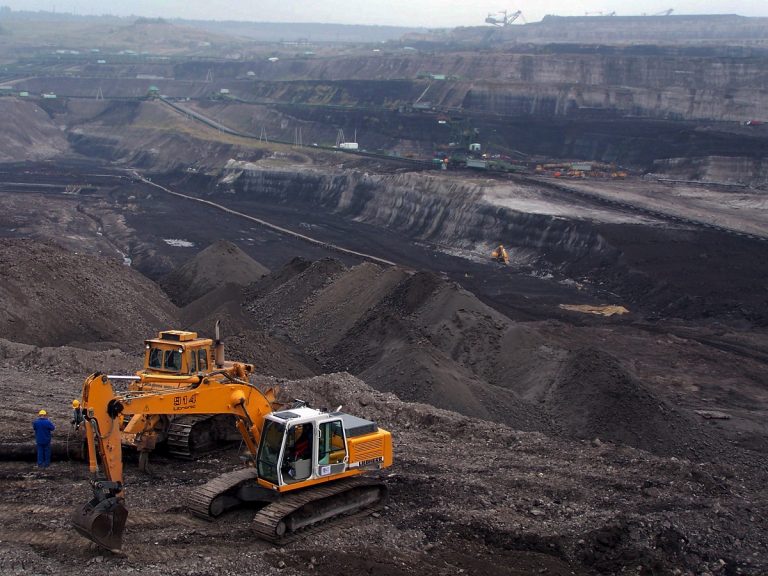Last week, the mine received a positive environmental impact assessment, and can now continue operating until 2044. Photo credit: Anna Uciechowska, licensed by CC BY-SA 3.0.
Prague, Oct 25 (CTK) – The Greenpeace and Bund Sachsen environmental NGOs and the Czech civic association Uhelna have filed a complaint with the European Commission against the Czech-Polish intergovernmental agreement on the Turow coal mine, Greenpeace said in a press release today.
Greenpeace and the Frank Bold organisation said the agreement has not resolved the negative impacts of the ongoing coal mining. They said the operation of the mine continues to cause environmental damage and a complaint cannot be filed with the Court of Justice of the EU (CJEU).
The Polish Turow mine is located close to the borders with the Czech Republic and Germany. Its operator, the PGE group, plans to keep mining until 2044. Most of the coal is used by the nearby power plant, also operated by PGE.
Czechs living close to the mine fear not only increased noise and dust levels but also the loss of drinking water.
Based on an intergovernmental agreement signed in February, Poland paid EUR 45 million to the Czech Republic in compensation, and the Czech Republic withdrew a lawsuit against Poland filed with the CJEU.
Bund Sachsen is the Friends of the Earth organisation in Germany. Uhelna is one of the Czech villages feeling the impact of the mining in Turow.
Nikol Krejcova, from Greenpeace, today said the Czech-Polish agreement is weak and insufficient. She said the negative impacts of the mining cannot be compensated and that Czech villages are still losing groundwater due to the mining. “The agreement shields the violation of European legislation by the Polish mining company PGE,” she said.
By signing the agreement, the Czech Republic consented to the illegal mining, said Frank Bold lawyer Petra Kalenska, who wrote the complaint sent to the European Commission. “From February to September 2022, the PGE company mined without an assessment of the mining’s impact on the environment, which is absolutely against European legislation. The law was also violated in several other cases, but the Czech government could not defend itself against these violations because it would mean violating the agreement itself. It is absurd,” she said.
Kalenska said the Czech Constitutional Court refused to deal with the Czech-Polish agreement, saying it did not fall under its jurisdiction. “And so local people and environmental organisations are addressing the European Commission, which is the only body that can still change something,” she said.
The complaint declares that the intergovernmental agreement does not protect water supplies around the mine and does not prevent the outflow of water from Czech territory. It says the latest available data indicate that the groundwater level declined by up to eight metres in the past 14 months. Under the agreement, PGE must limit mining only if the groundwater level drops by eight metres in six months.
Lukas Hrabek, from Greenpeace, said a group of European Parliament members including Czech MEP Mikulas Peksa (Pirates) sent a letter supporting the complaint to the Commissioner for the Environment, Virginijus Sinkevicius.
Two weeks ago, the Turow mine received a positive Environmental Impact Assessment (EIA), so the Polish authorities may permit the mining until 2044. The Czech Foreign Ministry is waiting for the translation of the EIA documents. Its representatives said last week they would announce what steps they would take after they read the documents.







